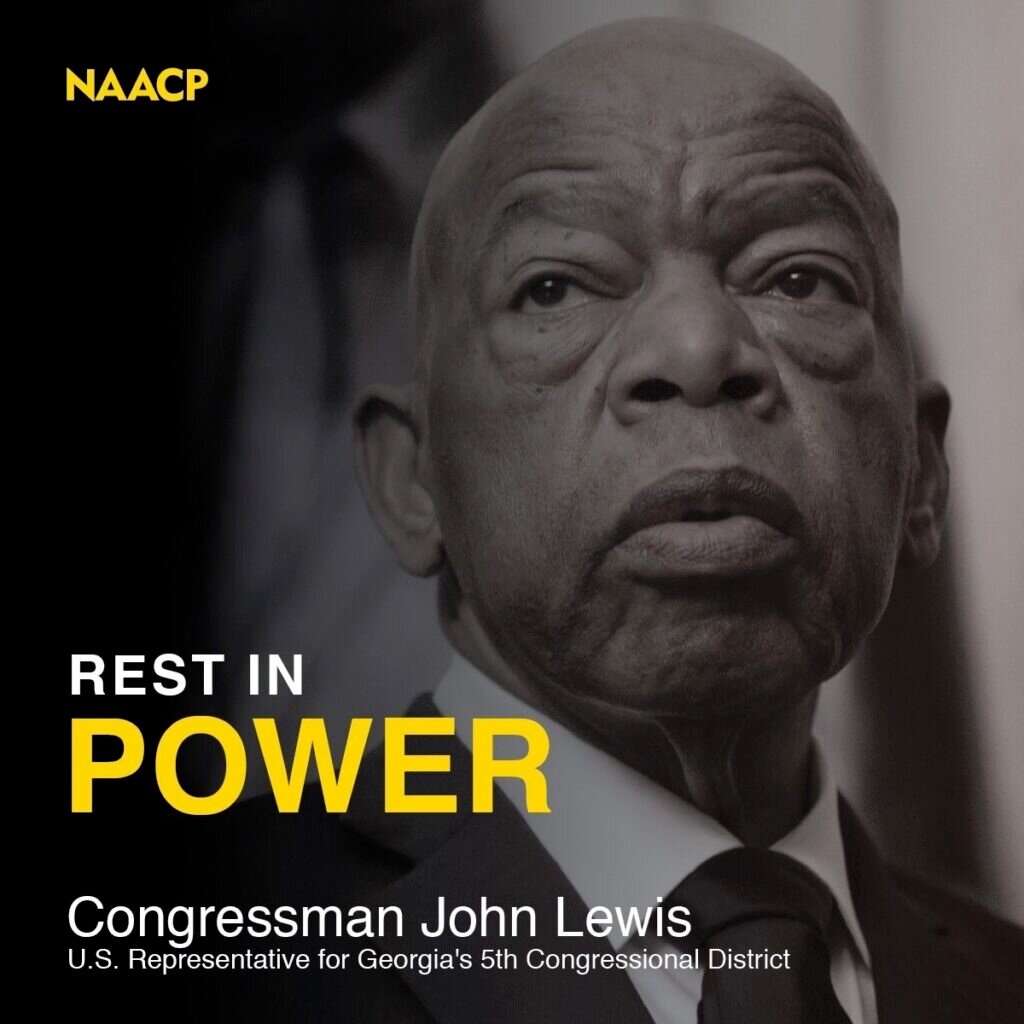Late last night, I received the terrible news that Congressman John Lewis, one of the most inspiring civil rights heroes of our time, had passed away.
Today, the NAACP family, and the entire nation mourn his passing with sorrow in our hearts, but a conviction in our knowledge that his legacy will live on for generations to come.
Often called “one of the most courageous persons the Civil Rights Movement ever produced,” John Lewis dedicated his life to protecting human rights, securing civil liberties, and building what he calls “The Beloved Community” in America. By 1963, Lewis was dubbed one of the Big Six leaders of the Civil Rights Movement. At the age of 23, he was an architect and a keynote speaker at the historic March on Washington in August 1963. He went on to become a United States Congressman and had served as U.S. Representative of Georgia’s Fifth Congressional District since 1986.
John Lewis is the recipient of numerous awards, including the prestigious Martin Luther King, Jr. Nonviolent Peace Prize. He received the NAACP Spingarn Medal in 2002 and the NAACP Chairman’s Award in 2020.
We are deeply saddened by his passing but profoundly grateful for his immense contributions to justice. A national treasure and a civil rights legend for the ages, he used every waking moment of his 80 years to push this country toward more representative democracy and left behind a remarkable model. It is up to us to pick up his mantle and carry on, and we urge the entire nation to join us. As people of all colors are in the streets seeking racial justice, we urge all that can to speak louder and stay a little longer to honor the best warrior for democracy our nation has ever known.
The NAACP extends our sincerest condolences to the family of Congressman Lewis and sends prayers of comfort and strength now and always.
“Every generation leaves behind a legacy. What that legacy will be is determined by the people of that generation. What legacy do you want to leave behind?” -- John Lewis
In Solidarity,
Derrick Johnson
@DerrickNAACP
President and CEO
NAACP


